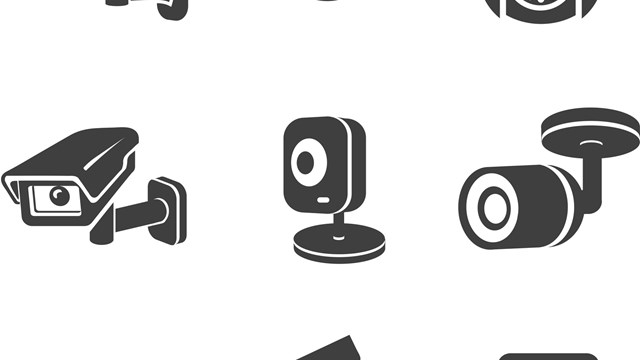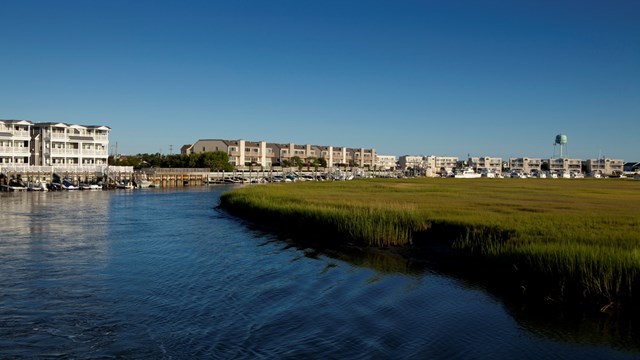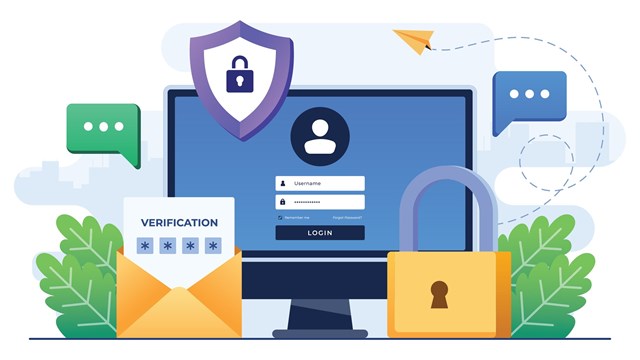
If security and privacy are two seats on a seesaw, the balance, in the last fifty years or so, has shifted towards the former. Federal mandates intended to keep citizens safe—seat belt requirements, gun control laws, smoking prohibitions, sex offender registrations, the raising of the drinking age to 21—have gone on the books, all of them infringing on personal freedoms, for better or for worse.
Since September 11, 2001, the pendulum has shifted even more radically in the direction of security. At airports, at sporting events, at nightclubs, at office buildings—even at public schools—we walk through metal detectors and offer our bags to be searched and sometimes get frisked, like we're headed to a sit-down with Tony Soprano. What would have seemed excessive and intrusive in 1997 is commonplace a decade later.
Multifamily residential buildings are, in many ways, microcosms of society as a whole. As attitudes towards safety have evolved, and as technology has improved, homeowners associations are dedicating more of their energies towards security. But where does vigilant security turn into overzealous—or downright illegal—surveillance? What can boards do to monitor their buildings without invading the privacy of their residents? What kind of security options are available, and how common are they? Let's take a look.
Security Snapshot
There are many reasons for the shift to security at the expense of privacy. Urban areas that in the past have been undesirable—Hoboken, for example, which fifty years ago was a depressed city—have been gentrified. Astronomical real estate prices in Manhattan have driven well-off-but-not-wealthy residents across the river into Hoboken, Weehawken, Fort Lee, Jersey City and elsewhere. The gentrification, in turn, has eroded the dividing line between city and suburb, with high-crime areas in some cases abutting high-priced neighborhoods. West Orange, for example, an affluent suburb, is precariously close to South and East Orange, which are not.
Moreover, the cultural attitude towards real estate has changed. As prices rose dramatically in the last twenty years, especially on the Northeast corridor, real estate was seen as a legitimate investment—literally as safe as houses—rather than just a place to live. This made people more vigilant about protecting what they had.
All that said, there is one single event that did more to ramp up security than anything else.
"There was a sea change after September 11, where security moved from the backburner to the forefront," says Mark Lerner, president of Manhattan-based EPIC Security. EPIC Security services all five boroughs of New York and the New Jersey metro area.
In the fall and winter of 2001, Lerner, who holds a doctorate in criminology, saw a 35 percent increase in uniformed security guards in the New York metropolitan area.
After the initial spike, Lerner says, there has been a 10 percent increase in security in the last six years. This has spilled from New York into the outlying areas, including parts of New Jersey.
"Most associations today, especially in light of post-9/11, want heightened security," says Donald M. Onorato, an attorney in Hackensack.
Buildings that once had open doors now require guests to sign in, Onorato says, and buildings that once required guests to sign in now require ID as well as a signature. And, as technology becomes cheaper, there has been a proliferation of spying equipment.
"You're seeing more cameras," Onorato says. "And I'm seeing buildings that already had camera systems upgrading to digital."
The closer to New York, apparently, the greater the push for more security. John H. Crammond, an attorney in Bloomingdale, whose clients are mostly in suburban and semi-rural Sussex and Bergen counties, says he hasn't seen a huge increase in security.
"It's mostly about people being watchful," he says. "They keep an eye out, see if they see anything untoward."
If there are cameras, they are mostly at seasonal properties, to catch would-be vandals.
Security Options
The types of electronic security available to a community fall under three categories, Lerner says: alarm systems, access controls and closed-circuit TV (CCTV).
Alarm systems don't lend themselves well to a condominium or co-op, where people are coming and going at all hours of the day and night. Access controls, which require entering a code before entering a common area, are useful in places like garages.
Cameras are becoming more and more common, Lerner says, and as the technology improves, paradoxically, it also becomes cheaper.
"Where you used to use a VCR, now you use TiVo—it's the same thing with cameras," Lerner says. "People record on hard drives."
The technology is quite advanced, he says.
"You don't see grainy black-and-white anymore—it's high-resolution color," says Lerner. "And it can be seen over the Internet, so the building manager can watch from his apartment."
In short, it has become much easier, and much more affordable, to have a set-up like Billy Baldwin in Sliver. But it's one thing to spot a criminal, and quite another to stop him before he acts.
"Closed-circuit TV does not reduce crime," Lerner explains. "It's useful to solve crimes."
The evidence for his assertion is not anecdotal. Many academic studies have proved this to be true, he says. The only way to really deter criminals is the presence of uniformed security.
"When the bad guys see a uniformed doorman, they go to the next target," Lerner says. "They don't look for cameras or closed-circuit TV. Interviews with criminals in prison show this."
Guards can be dressed in a variety of ways. "In high crime areas, like a Newark, people are choosing a police-type uniform," he says. "In more upscale areas—Livingston, say, or in Bergen County—they like the blazer look, a softer look."
Another option for more sprawling communities is to have security guards patrol the grounds in vehicles. This is already the norm in certain sections of New York City, like Forest Hills, he says.
"Some people have gatehouses, where the security guard is at the gate," Lerner says. "So the bad guys go out back and climb over the fence."
A benefit of having a live guard is that police tend to respond more quickly to calls from security guards, Lerner says. "Bad guys have caught on to that."
When choosing a security company, Lerner recommends trying the number at odd hours, to ensure that it's a 24-hour operation.
"Call at four a.m. and see if they have a live person answering the phone," he recommends.
And what about privacy? Don't security guards put a damper on the mood?
"People always want security guards," Lerner says. "I've seen very little opposition."
Security Pitfalls
While it is true that most residents embrace the push for more security—in many cases, only the price tag stops them from doing more—there are potential problems that can arise if boards overreach.
Cameras may not be used in individual units, and care must be taken to make sure the cameras are only monitoring the community in question. A camera in front of the main entrance that is pointed in the direction of another apartment building, for example, may violate the privacy of the residents across the street.
Another pitfall involves getting over-involved.
"As a practical matter on intrusion on privacy, I tell my clients not to intervene in a dispute, in a domestic problem," Crammond says. "I recommend they contact the local police department."
Of course, one of the reasons people live in communities is just that—to live in a community.
"When you purchase a condo or co-op, you give up some right to privacy," says Onorato. "You have to balance it—you don't want an intrusive board, but people do purchase in communities because of a heightened sense of security."
Greg Olear is a freelance writer, editor, web designer, astrologer and stay-at-home dad living in Highland, New York.






Leave a Comment